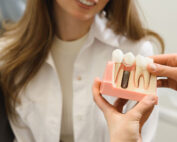News + Articles
What Are the 3 Stages of Dental Implant Surgery?
What is your solution for replacing missing teeth? Are you thinking of getting a dental implant surgical procedure?
The journey may seem mysterious, but understanding it is vital to help you successfully transform your smile.
This complete guide breaks down the three stages of implants. We will accompany and guide you through each stage.
Share with you the insights you need to decide about your oral health.
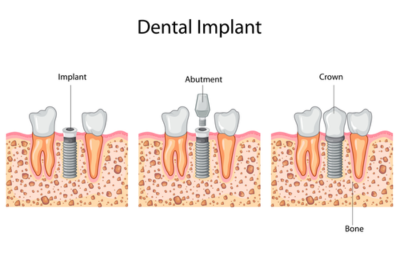
Have you found a solution for replacing missing teeth? Or are you already on the path to a new smile?
This is your roadmap to a confident, radiant grin. Keep reading to uncover the secrets of dental implant success.
Stage 1: Consultation and Treatment Planning
Comprehensive Examination And Assessment:
The dentist will check your oral health. They will take X-rays and may take a CT scan.

The scans will show your jawbone density and the location of the missing tooth. They will also show other relevant factors.
Bone Density Evaluation:
Assess your jawbone quality and quantity, and consider if a bone graft is needed.

Discussion And Consultation:
Discuss your options and explain the dental implant procedure’s benefits and risks.

Personalized Plan Treatment Development:
They will make a detailed treatment plan for you. This will be based on the assessment and discussion.
The plan will fit your needs and include the type and number of implants needed, the timeline, and the cost.
Stage 2: Implant Surgery
Bone Grafting (If Needed)
A Possible Step. The jawbone isn’t dense enough sometimes. The patient may need bone grafting before placing the implant.
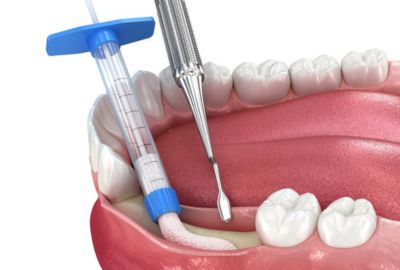
This involves adding bone material to make it stronger. It also provides a stable base for your implant.
Local Anesthesia
The surgical area will be numbed with local anesthesia. This will ensure your comfort during the implant placement.

Exposure of Jawbone and Implant Placement
The dentist will make a small incision in the gum tissue to expose the jawbone.
Then, they will make a small hole and gently place the implant inside. Lastly, they will close the gum back up.
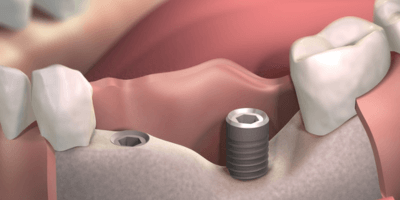
Healing Period Begins
The first phase of healing time usually takes a few months.
During this time, the implant fuses with your jawbone (known as osseointegration), creating a solid base for your new tooth.
Temporary Tooth Placement (Optional)
Sometimes, the Doctor may place a temporary tooth for you.
This keeps up looks and functions while the implant joins with the bone.

Stage 3: Final Restoration
Implant Integration Check
After a few months, they will help you check if the implant has joined with your bone.
Abutment Placement
After completing the osseointegration process, it’s time for the abutment.
This abutment is a small piece that connects the implant to the visible part of your new tooth (crown).
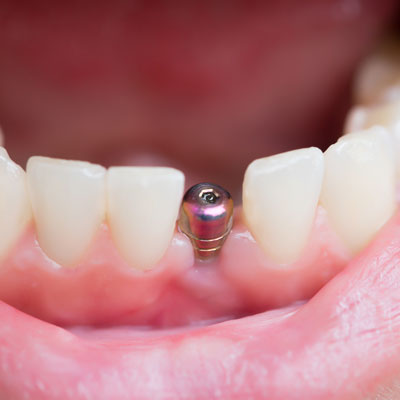
Impressions
They will take your teeth impressions and use them to make a crown. It will fit the implant and match your natural teeth.
Crown Placement
The crown is custom-made and is securely attached to the abutment. This will complete the tooth restoration.
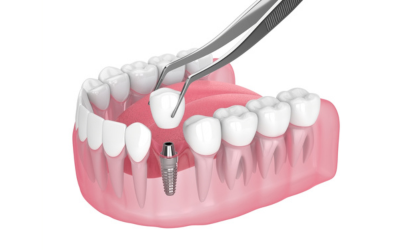
Pros of Implants Vs. Alternative Treatments
Dental implants offer many advantages over traditional tooth replacement options, such as dentures or bridges.
But, the best choice depends on individual needs and oral health.
- Durability: Implants may last a lifetime with proper maintenance.
- Natural look and feel: They function like natural teeth.
- Bone health: Implants prevent bone loss by promoting bone growth.
- No impact on surrounding teeth: Unlike dental bridges, implants don’t require altering adjacent teeth.
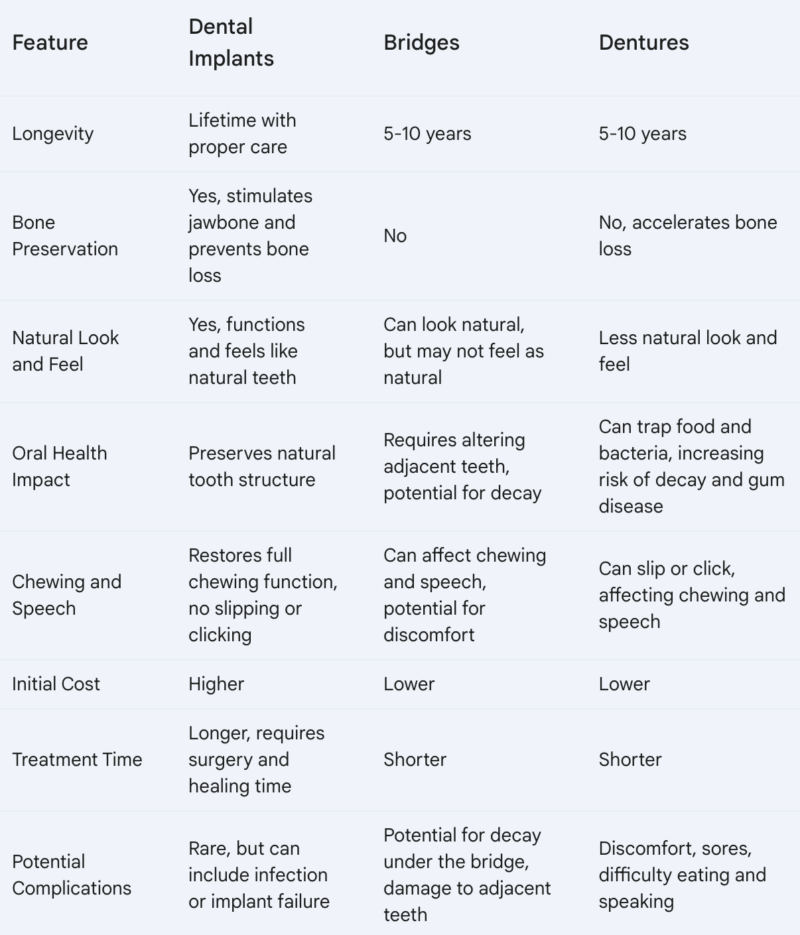
Dental Implant Recovery Care
Immediate Post-Operative Care:
- Gentle oral hygiene practices.
- Cold compresses to reduce swelling.
- Pain medication as prescribed by the dentist.
- Soft food diet, avoiding hard and hot foods.
Follow-Up and Monitoring:
- Follow-up appointments as scheduled by the dentist to monitor healing progress.
- Report any unusual symptoms such as prolonged bleeding, severe pain, or excessive swelling to the dentist immediately.
Long-Term Care:
- Thorough daily oral hygiene routine.
- Use of dental floss and mouthwash.
- Regular dental check-ups to monitor the implant and overall oral health.
Risks and complications of the implant process
Dental implants have a high success rate. But it’s important to know that major issues are rare.
There is a small risk, usually under 10%, that they can fail or have problems.
These risks increase if you smoke, have uncontrolled diabetes, or don’t care for implants well. Some potential problems include:
- Infection.
- Nerve damage.
- Sinus problems.
- Implant failure.
- Peri-implantitis (Infection around the implant).
Carefully follow your dentist’s advice before and after the procedure.
Contact your dentist immediately if you have pain, swelling, or other strange symptoms.
Frequently Asked Questions
What is the success rate of dental implants?
Evidence indicates that dental implants have a success rate of up to 95% when properly cared for.
What is the estimated cost of a dental implant procedure?
The cost can vary widely. It depends on the number of implants and extra procedures, like bone grafts, that are needed. It’s crucial to see your dentist to receive an accurate estimate.
Does insurance cover dental implants?
Coverage varies by provider. Some insurance could pay for a portion of the treatment. This is especially true if it is medically needed.
What foods should you eat after surgery?
We recommend soft foods. These include soups, smoothies, and mashed potatoes.
Eat them in the days following surgery. Gradually introduce more complex foods as you heal.
How do you maintain dental implants long-term?
Maintaining dental implants is similar to caring for your natural teeth. Frequent dental examinations, brushing, and flossing are essential. They help your implants last a long time.
Implant Dentistry in Orange, CA

Dr. Ronald Pham, DDS, is a Doctor of Dental Surgery who graduated from the USC Ostrow School of Dentistry in 2015. With over 8 years of experience in general dentistry, he specializes in Dental restoration, Root canal treatment, and Dental implants…
Dr. Pham has restored the smiles of +2,000 patients and is committed to providing professional dental care focused on patient comfort. He achieves this by combining a welcoming space and state-of-the-art dental technology.
Book Your Appointment Now
Related Articles

Guaranteed Smiles!
As a premiere dentist office in Orange CA, we will always make sure that your experience is memorable, friendly, and professional. We strive to meet your highest expectations in every way imaginable, from your very first interaction with our office staff, to the quality of treatment you receive. We don’t take our patients’ trust for granted, and will promise to over-deliver with your best interest in mind. So give us a call today, and experience our first-class service!
Insurance
Accepted
We proudly accept most dental insurance plans, and welcome cash patients as well. Call us today for more information.
$199
Special
New to our dental office? Take advantage of our New Patient special offer with x-rays, exam, and full report of findings.
Extended
Hours
Do you have an emergency? Need to see us a little later or earlier? Let us know. We can be flexible to meet your busy schedule!


